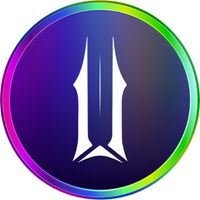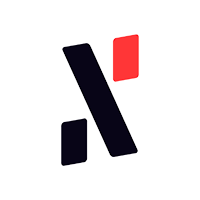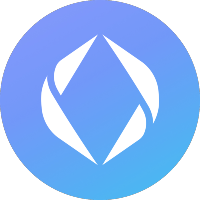Top DAO tokens by market capitalization
DAO contains 177 coins with a total market capitalization of $29.24B and an average price change of +2.92%. They are listed in size by market capitalization.
Decentralized Autonomous Organizations (DAOs) are entities built atop blockchain technology, operating self-sufficiently with predefined rules set by members. These digital organizations enable participants to collaborate in a trustless environment, underpinning their operations with transparent, open, and decentralized principles. Leveraging self-executing smart contracts, DAOs ensure transparency and autonomy in their operations.
Every member defines the DAO's modus operandi – from asset management and communication channels to voting mechanisms, governance, and project execution. An intrinsic feature is the open-access ledger, particularly for financial transactions, fostering an incorruptible ecosystem where members seamlessly cooperate. This collaborative model is becoming increasingly prominent in shaping De-Fi, Game-Fi, DApps, and other crypto or token ventures.
See more
| Name | Price | 24h (%) | 7D (%) | Market cap | 24h volume | Supply | Last 24h | Action | |
|---|---|---|---|---|---|---|---|---|---|
 MANTRAOM | $6.47 | -1.83% | -4.96% | $6.37B | $100.90M | 984.97M | Trade | ||
 UniswapUNI | $6.95 | +2.84% | +11.65% | $4.37B | $107.38M | 628.49M | Trade | ||
 AaveAAVE | $193.08 | +4.71% | +13.63% | $2.91B | $245.23M | 15.09M | Trade | ||
 BittensorTAO | $272.23 | +8.38% | +10.41% | $2.31B | $89.09M | 8.48M | Trade | ||
 ArbitrumARB | $0.3840 | -- | -- | $0 | $0 | 0.00 | Trade | ||
 DeXeDEXE | $17.43 | +2.53% | +1.48% | $1.46B | $21.14M | 83.73M | |||
 Lido DAOLDO | $1.06 | -- | -- | $0 | $0 | 0.00 | Trade | ||
 JitoJTO | $2.26 | +6.15% | +3.95% | $698.02M | $35.02M | 308.19M | Trade | ||
| $0.5141 | +4.70% | +17.02% | $671.24M | $142.28M | 1.31B | Trade | |||
| $17.76 | -- | -- | $0 | $0 | 0.00 | Trade | |||
 ApeCoinAPE | $0.5560 | -- | -- | $0 | $0 | 0.00 | Trade | ||
 CompoundCOMP | $44.7 | +3.58% | +3.64% | $399.59M | $32.59M | 8.94M | Trade | ||
 SynthetixSNX | $0.9185 | +4.64% | +11.15% | $311.80M | $21.82M | 339.47M | Trade | ||
| $0.1054 | -12.46% | +20.28% | $307.62M | $460.63M | 2.92B | Trade | |||
 DashDASH | $23.87 | +3.22% | +4.04% | $290.97M | $39.91M | 12.19M | |||
| $0.005394 | +1.05% | +6.97% | $249.09M | $13.71M | 46.18B | Trade | |||
 0x ProtocolZRX | $0.3011 | +13.85% | +20.78% | $255.48M | $112.71M | 848.40M | Trade | ||
 DecredDCR | $12.52 | +3.54% | +6.04% | $209.08M | $3.65M | 16.70M | |||
 SushiSwapSUSHI | $0.6982 | +2.85% | +8.19% | $187.08M | $35.56M | 267.94M | Trade | ||
 aelfELF | $0.2462 | +0.65% | -0.78% | $181.98M | $13.89M | 739.28M | Trade | ||
| $5,291.43 | +2.15% | +6.04% | $178.58M | $28.15M | 33749.66 | Trade | |||
 KadenaKDA | $0.5078 | +4.93% | +8.71% | $157.36M | $5.41M | 309.88M | Trade | ||
 Bio ProtocolBIO | $0.09219 | +6.30% | +3.55% | $126.27M | $19.31M | 1.37B | Trade | ||
 UMAUMA | $1.39 | -0.68% | +16.38% | $119.68M | $39.74M | 85.99M | Trade | ||
 FluxFLUX | $0.2830 | +4.95% | +4.67% | $108.01M | $7.71M | 381.71M | Trade | ||
 AudiusAUDIO | $0.08140 | -- | -- | $0 | $0 | 0.00 | Trade | ||
 BalancerBAL | $1.54 | +3.22% | +7.60% | $96.25M | $9.11M | 62.59M | Trade | ||
 IQIQ | $0.004610 | +4.59% | +3.49% | $96.31M | $10.50M | 20.89B | Trade | ||
| $0.2140 | +2.43% | +7.28% | $93.37M | $13.68M | 436.37M | Trade | |||
 ConstitutionDAOPEOPLE | $0.01823 | +4.03% | +10.93% | $92.26M | $38.60M | 5.06B | Trade | ||
 IlluviumILV | $15.31 | -- | -- | $0 | $0 | 0.00 | Trade | ||
![Stratis [New]](https://img.bgstatic.com/multiLang/coinPriceLogo/9a7d28f236a930ed5ccfa997352e6b521711645984131.png) Stratis [New]STRAX | $0.04379 | +0.49% | +4.53% | $85.21M | $1.57M | 1.95B | |||
 ChainGPTCGPT | $0.1057 | +6.77% | +6.51% | $84.60M | $27.59M | 800.47M | Trade | ||
| $0.3905 | +6.44% | +7.74% | $72.97M | $18.54M | 186.86M | Trade | |||
 SuperRareRARE | $0.07389 | +0.04% | -17.57% | $61.68M | $26.57M | 834.75M | Trade | ||
 Tornado CashTORN | $11.91 | -2.25% | +29.66% | $62.60M | $780,322.17 | 5.26M | Trade | ||
 LumiaLUMIA | $0.5120 | +2.59% | +9.39% | $59.57M | $4.81M | 116.35M | Trade | ||
 Hifi FinanceHIFI | $0.3313 | +2.66% | -3.56% | $46.97M | $7.05M | 141.79M | Trade | ||
 inSure DeFiSURE | $0.001780 | +3.51% | +3.24% | $47.70M | $10.78 | 26.79B | |||
 HashflowHFT | $0.07920 | +2.18% | +13.42% | $43.98M | $11.27M | 555.32M | Trade | ||
 RadworksRAD | $0.8305 | +2.24% | -2.83% | $42.83M | $12.80M | 51.58M | Trade | ||
 AlephiumALPH | $0.3874 | +7.84% | +14.89% | $41.20M | $424,422.89 | 106.36M | Trade | ||
| $2.86 | +0.55% | +4.56% | $41.02M | $5.42M | 14.34M | ||||
 Dego FinanceDEGO | $1.94 | +3.17% | -3.00% | $40.71M | $8.20M | 21.00M | |||
 Lista DAOLISTA | $0.1964 | -0.45% | +8.78% | $37.51M | $7.65M | 191.01M | Trade | ||
 GitcoinGTC | $0.3765 | +1.14% | +3.43% | $36.11M | $7.14M | 95.91M | Trade | ||
 Alien WorldsTLM | $0.006116 | +1.96% | +0.81% | $35.22M | $10.58M | 5.76B | Trade |








